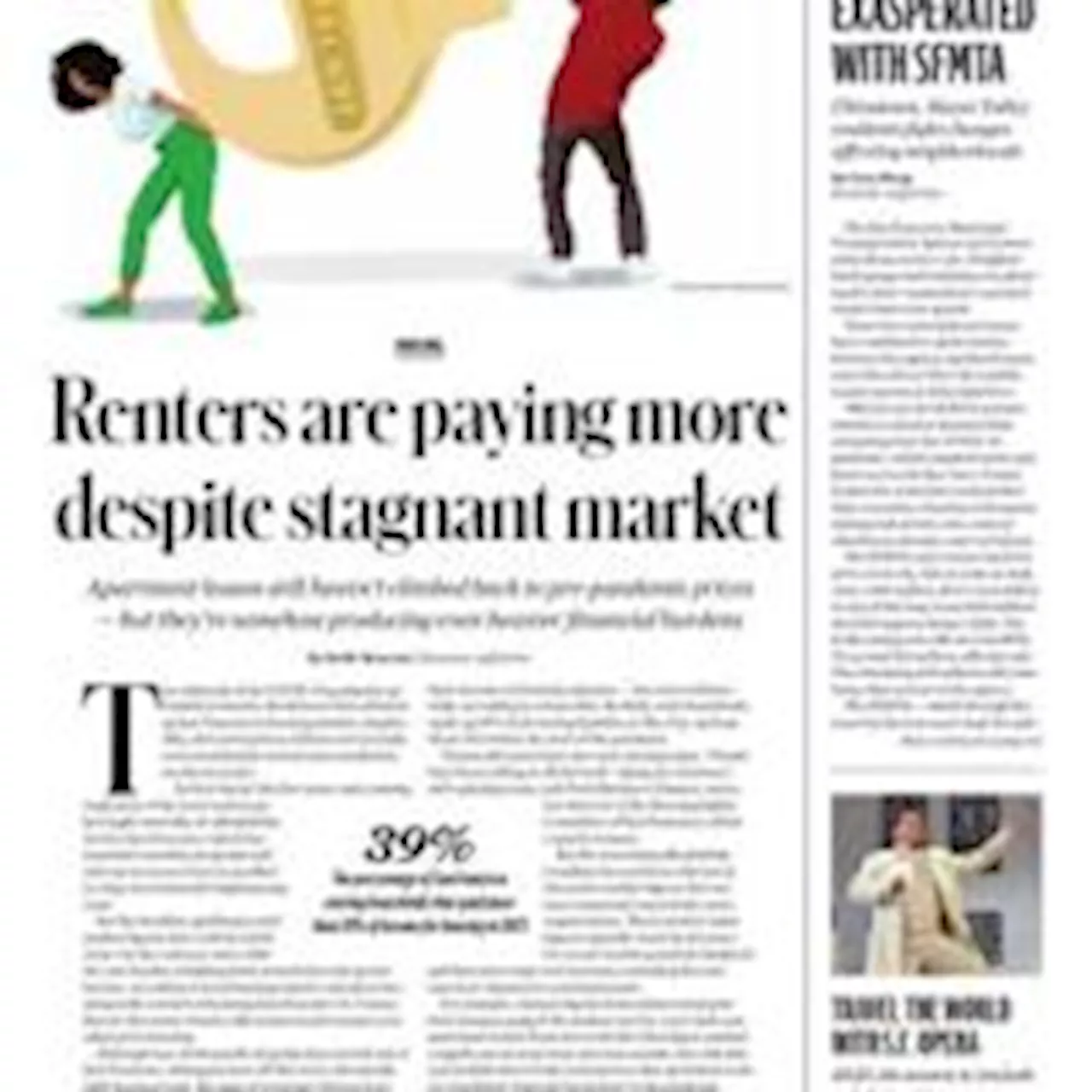While San Francisco's rental market has softened since the COVID-19 pandemic, the rent burden on tenants has actually increased. Despite a decrease in overall rental prices, the share of renters paying more than 30% of their income on housing has risen substantially, reflecting a stark reality for many city residents.
The outbreak of the COVID-19 pandemic unleashed economic shockwaves that softened up San Francisco ’s housing market considerably, and rental prices still have not yet fully recovered despite several years marked by steady increases.But the headline-grabbing rental market figures don’t tell the whole story. On the contrary, since 2019, the rent burden weighing down tenants has only grown heavier, according to local housing experts and advocates along with a review of housing data from the U.S.
Over the past few years, as thousands of San Francisco renters have exited The City and left behind their rent-controlled apartments, landlords have had the opportunity to raise rental prices on the new occupants who have taken their place. Tenants who stay in the same rent-controlled apartments for many years often pay well below the market rate — but once those tenants depart, the favorable rates do not carry over to the next occupants.
“Ideally, your region can keep up with demand through keeping up housing construction or having housing construction keep pace,” said David Garcia, who helps lead the housing-focused policy group Up for Growth. “That’s not what’s happening in the Bay Area.”. The report included the striking finding that out of all the regions tracked, the San Francisco metropolitan area has been making the most progress curbing its underproduction problem.
With the federal targeting of LGBTQ rights showing no sign of slowing, San Francisco’s transgender community gathered for the second annual Health and Wellness Fair on Tuesday to share resources and support for everything from gender-affirming surgery to housing access. “To understand the needs, but also be that mediating connection between the fear and anxiety that comes with connecting with service providers, which is to be misgendered or to not be seen and/or acknowledged due to, like, somebody’s physical presentation,” she said.
“All these executive orders are just being pumped down on the daily,” said Asri Wulandari, the communications manager for the San Francisco Office of Transgender Initiatives. “And there’s so much uncertainty in them because each one has very vague language — it’s unclear how it’s going to be enforced.”
Supervisor Bilal Mahmood, whose district includes the Tenderloin, spoke at Tuesday’s fair to emphasize support for the community from his office and the Board of Supervisors. Lila Madrigal, a pathways coordinator for Gender Health SF with the San Francisco Department of Public Health, said that locally, most of her department’s clients have increasingly needed help with housing in the last couple of years, and that more support is needed for unhoused transgender residents.
The health fair continued Wednesday and was set to do so Thursday at the San Francisco LGBT Center. with programming centered on healing and expression, such as meditation and Zumba, a dance-fitness program. The SFMTA — which through the years has been an easy target for public criticism — on Tuesday reiterated that this is simply the unfortunate financial reality, rather than what officials want to do. They said the budget crisis has boxed them into a corner with no satisfactory escape hatches at an especially inopportune time, with ridership yet to bounce back to pre-COVID levels.at which the agency outlined and elicited feedback on three proposals for this summer’s looming cuts.
The SFMTA emphasized the longer 30 Stockton route will be unchanged. Riders can also use the 45 Union/Stockton and T Third Street rail line to access Chinatown from Caltrain and SoMa and vice versa, officials said. To help with the transition, the SFMTA is installing its first ever Chinese head signs to all Stockton 30 buses to help make clear to all residents which line is heading to Caltrain and which will only go as far as Union Square.The SFMTA will install the first ever Chinese character head signs on its buses to help communicate the 30 Stockton changes.
“The reality of Hayes Valley is that there’s a lot of people from all backgrounds and demographics here,” Vlad said. “The people who rely on the bus aren’t the ones in Ubers and Waymos.”
Rent Burden Housing Crisis San Francisco Rental Market Inflation
United States Latest News, United States Headlines
Similar News:You can also read news stories similar to this one that we have collected from other news sources.
 San Francisco Seeks to Remove Financial Barriers to Office-to-Housing ConversionsSan Francisco city officials are considering new measures to incentivize the conversion of vacant office buildings into residential housing. Faced with a declining downtown economy due to remote work, they aim to address financial obstacles through exemptions from development fees and inclusionary housing requirements, as well as leveraging a new state law allowing property tax benefits for such projects.
San Francisco Seeks to Remove Financial Barriers to Office-to-Housing ConversionsSan Francisco city officials are considering new measures to incentivize the conversion of vacant office buildings into residential housing. Faced with a declining downtown economy due to remote work, they aim to address financial obstacles through exemptions from development fees and inclusionary housing requirements, as well as leveraging a new state law allowing property tax benefits for such projects.
Read more »
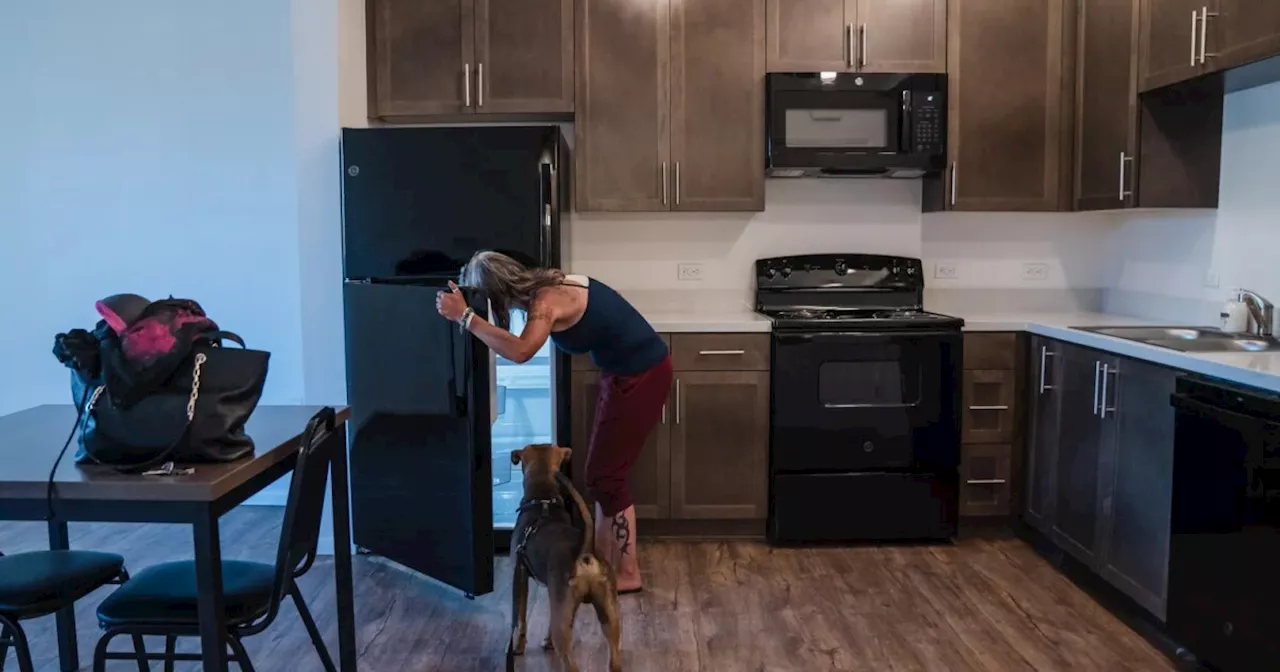 San Diego's housing agency won’t issue vouchers for new housing projectsThe San Diego Housing Commission has decided it no longer has the resources to dole out vouchers to specific low-income housing projects, a move expected to slow the pace of new homeless housing.
San Diego's housing agency won’t issue vouchers for new housing projectsThe San Diego Housing Commission has decided it no longer has the resources to dole out vouchers to specific low-income housing projects, a move expected to slow the pace of new homeless housing.
Read more »
 San Francisco Domestic Violence Survivors Still Struggle for Legal Aid Despite Proposition DDespite passing Proposition D in 2022, which aimed to guarantee legal representation for domestic violence survivors, San Francisco continues to grapple with a lack of resources. Survivors face lengthy waitlists and overwhelmed organizations, highlighting the financial gap in fulfilling the promise of the proposition.
San Francisco Domestic Violence Survivors Still Struggle for Legal Aid Despite Proposition DDespite passing Proposition D in 2022, which aimed to guarantee legal representation for domestic violence survivors, San Francisco continues to grapple with a lack of resources. Survivors face lengthy waitlists and overwhelmed organizations, highlighting the financial gap in fulfilling the promise of the proposition.
Read more »
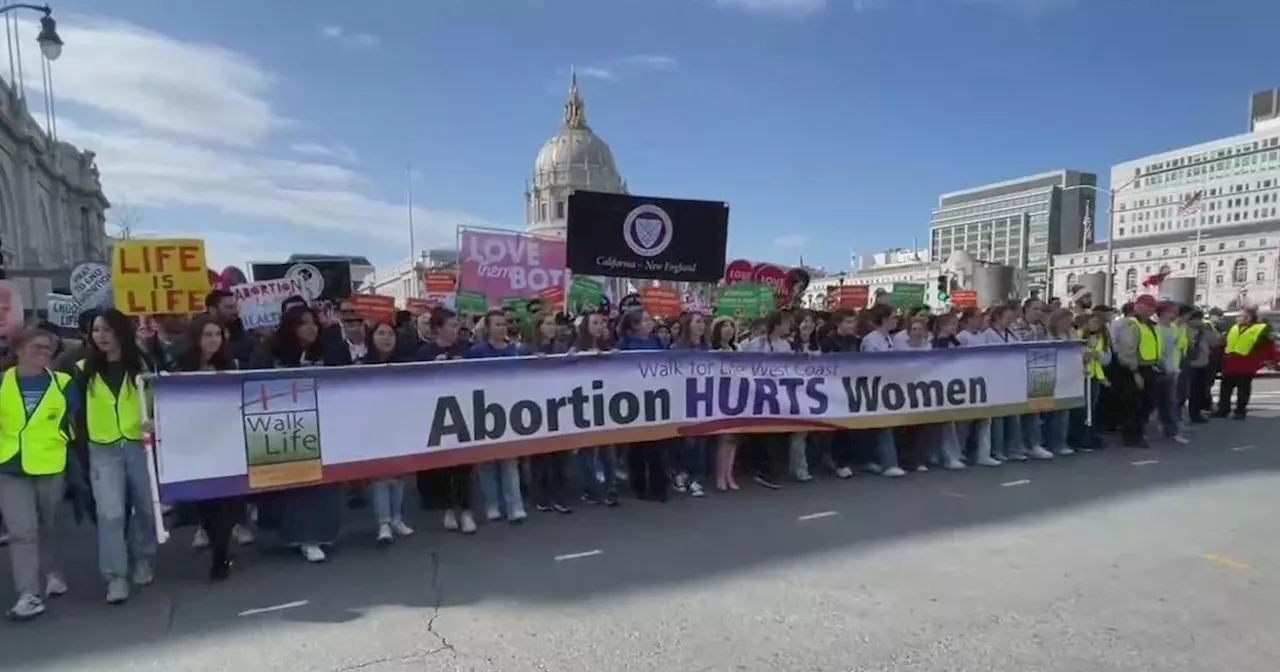 Walk for Life Draws Thousands to San Francisco Despite Claims it's Not PoliticalThousands of pro-life activists gathered in San Francisco for the annual Walk for Life, a demonstration against abortion that has grown significantly in size since its inception in 2005. While organizers maintain the event is not politically motivated, the timing coincides with President Trump's re-election and his reversal of Biden executive orders on abortion access. The march highlights the deeply divisive nature of the abortion debate in the United States.
Walk for Life Draws Thousands to San Francisco Despite Claims it's Not PoliticalThousands of pro-life activists gathered in San Francisco for the annual Walk for Life, a demonstration against abortion that has grown significantly in size since its inception in 2005. While organizers maintain the event is not politically motivated, the timing coincides with President Trump's re-election and his reversal of Biden executive orders on abortion access. The march highlights the deeply divisive nature of the abortion debate in the United States.
Read more »
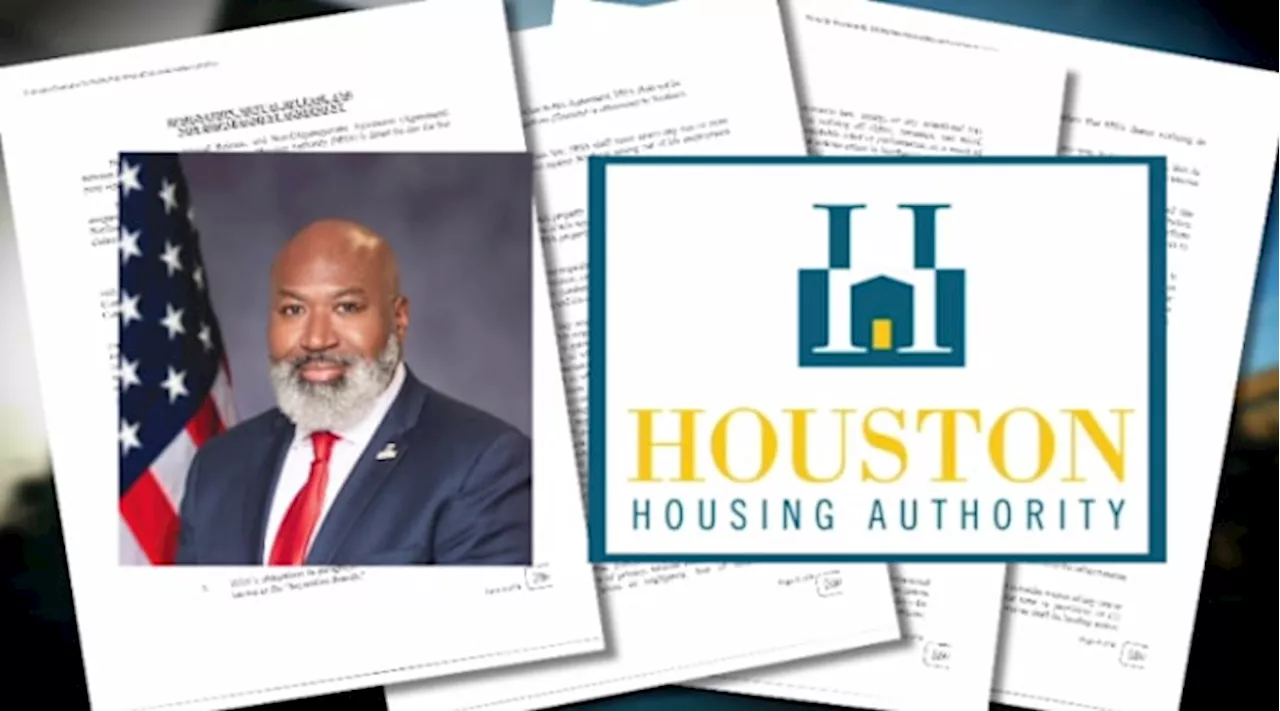 ‘They should be helping people pay rent, not having Christmas parties’: Houstonians await answers on HHA fundsAmidst a housing crisis affecting thousands, the Houston Housing Authority faces scrutiny over its spending practices.
‘They should be helping people pay rent, not having Christmas parties’: Houstonians await answers on HHA fundsAmidst a housing crisis affecting thousands, the Houston Housing Authority faces scrutiny over its spending practices.
Read more »
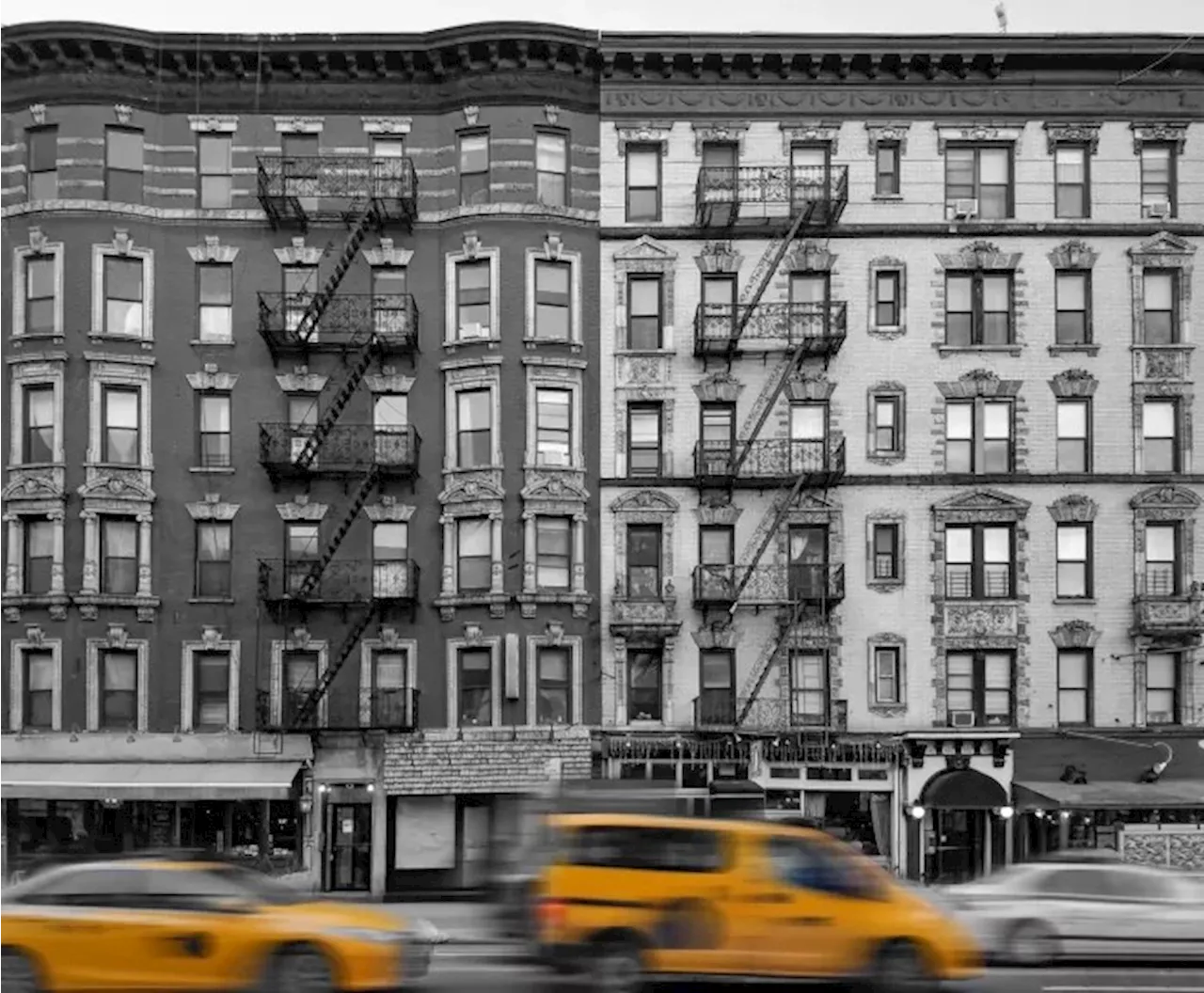 NYC's Housing Department Celebrates Progress in Fair Housing InitiativeThe New York City Department of Housing Preservation and Development (HPD) has released a progress report highlighting significant achievements in its ambitious fair housing initiative, Where We Live NYC. The report reviews the plan's goals, strategies, and commitments, showcasing advancements in combating housing discrimination, promoting equitable development, preserving affordability, and creating more inclusive housing options.
NYC's Housing Department Celebrates Progress in Fair Housing InitiativeThe New York City Department of Housing Preservation and Development (HPD) has released a progress report highlighting significant achievements in its ambitious fair housing initiative, Where We Live NYC. The report reviews the plan's goals, strategies, and commitments, showcasing advancements in combating housing discrimination, promoting equitable development, preserving affordability, and creating more inclusive housing options.
Read more »
